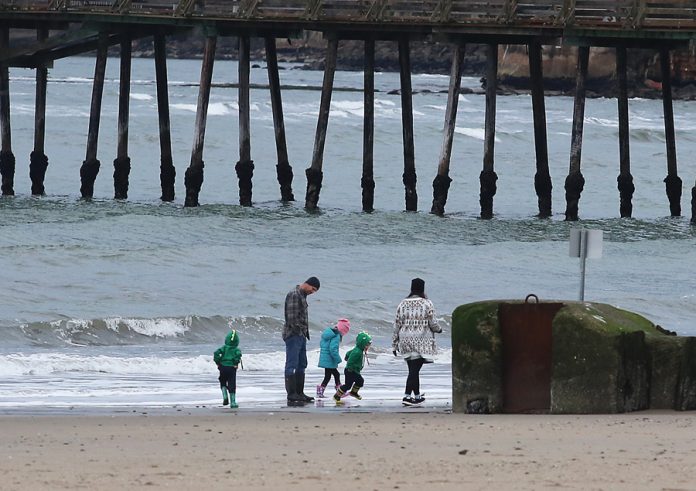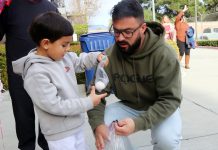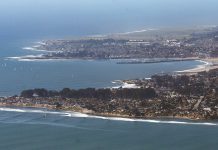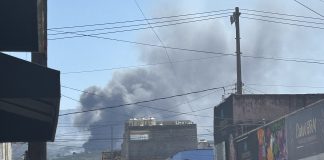
Tarmo Hannula: I learned in the newspapers the other day that Germans are credited with starting the tradition of Christmas trees in the 1500s.
•
At midnight Tuesday, as Christmas Eve slipped into Christmas Day, I heard an interesting bit on my police radio from a 911 dispatcher. He first sounded a few alert tones over the air, which are used to get the attention of emergency workers of something important, usually a crash, a fire, or big crime. The tones were followed by the dispatcher, in his typical dry, unexcited tone, announcing a B.O.L. (be on the lookout) for a man seen on a rooftop dressed in a red outfit with white trim, a floppy red hat, glasses, white hair and a full white beard. He was described as around 6-feet tall, chubby and carrying a large full sack. The dispatcher then advised police that if the suspect was spotted to “stop and detain” but not for long because he had a lot of stops to make that night. It seemed like a nice touch by the 911 Center, especially as I thought of some police officer, working Christmas Eve, dark, cold and rainy, cruising around by him or herself in a city that was largely closed down. I’m sure it brought a smile to a few folks out there that were keeping watch over our streets.
•
In years past I’ve visited the 911 Center on Christmas Day just to get a feel of what their workload was like on Dec. 25. As you can imagine, they don’t close and they don’t go home and fold up shop. Fires still happen, criminals still lurk about, people speed and someone gets in a crash. It’s always interested me how the team of dispatchers are there at their work stations surrounded by holiday goodies, a decorated tree, gifts and the like, but when a emergency call comes in they become the experts who, in an instant, get the issue solved. That means sending the right personnel and equipment, helicopters, 100-foot aerial ladder trucks, detectives, traffic control, lifeguards — all dashed out in seconds on their computers and spoken over the air. Their delivery has to be concise, with razor precision. And when that particular call is complete, they go back to their hot chocolate and wait for the next call.
•
In the Dec. 26 edition of the New York Times there’s an article in their business section about Chuck Peddle who died at 82 in Santa Cruz. He was an engineer who created a $25 silicon chip in the 1970s that helped build the PC age. He had been working for Motorola in Phoenix when he came up with a $25 chip, but his idea was turned away. So he and a pack of engineers headed to Valley Forge and developed their silicon chip that was eventually picked up by Apple and other tech giants.
•
On Christmas Day my wife Sarah and I drove around Capitola and Santa Cruz to get a taste of those places in shift-down mode. Traffic was almost non-existent. The roads were calm and relaxing. Strolling the beach at Capitola, in a light rain, under a thick layer of clouds added to the tranquility. Only a handful of people were out there, some enjoying the lapping tide while others clung to the wood benches along the Esplanade. I spotted Supervisor Zach Friend who was with a family group and he gave a friendly greeting. Downtown Santa Cruz seemed to be in slow motion, with small clutches of people milling about as darkness fell.
•
Next come New Years. Typically a huge crowd gathers at the Town Clock in downtown Santa Cruz to help usher in the flip of the calendar page.
•
Quote of the day: “My aim is to put down on paper what I see and what I feel in the best and simplest way.” — Ernest Hemingway











